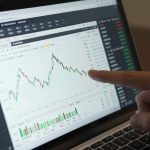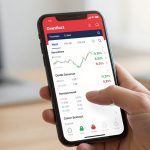If you’re new to forex trading, Reddit can be a goldmine of information and support. The forex reddit communities are filled with traders of all levels sharing their insights, experiences, and tips. This guide aims to help beginners navigate these communities, understand essential trading concepts, and develop a successful trading strategy. Whether you’re just starting or looking to refine your skills, there’s something here for everyone. Let’s explore how to make the most out of forex reddit!
Key Takeaways
- Join popular subreddits like r/Forex and r/RealDayTrading to connect with traders.
- Learn the basics of currency pairs, pips, and spreads to build a solid foundation.
- Create a trading plan that includes both technical and fundamental analysis.
- Avoid common pitfalls like overtrading and neglecting risk management.
- Engage with the community by sharing your journey and asking questions.
Understanding Forex Reddit Communities
Reddit can be a goldmine for forex traders, especially if you’re just starting. It’s like having a huge study group available 24/7. But, like any online community, you need to know where to look and how to filter out the noise. It’s easy to get overwhelmed, so let’s break down how to use Forex Reddit effectively.
Popular Subreddits for Forex Trading
Okay, so where do you even begin? There are a few main subreddits that most people recommend. r/Forex is probably the biggest and most active. You’ll find a mix of everything there – news, questions, analysis, and the occasional meme. Then there’s r/Daytrading, which, while not exclusively forex, has a lot of overlap. Finally, check out r/ForexStrategy for more focused discussions. Each has its own vibe, so spend some time lurking to see which one fits you best.
Engaging with Experienced Traders
One of the best things about these communities is the chance to learn from people who’ve been trading for years. Don’t be afraid to ask questions, but do your homework first. Nobody likes answering the same basic question over and over. When you ask, be specific and show that you’ve put in some effort. You’ll get much better responses that way. Also, pay attention to who’s giving the advice. Look for users with a track record of good calls and helpful posts. You can also find communities outside of Reddit, such as free community groups, to expand your network.
Finding Reliable Information
This is where things get tricky. Not everything you read on Reddit is true, or even good advice. Always double-check information, especially when it comes to specific trading signals or strategies. Look for sources that back up claims, and be wary of anyone promising guaranteed profits. A healthy dose of skepticism is your best friend. Remember, even well-intentioned advice can be wrong for your particular situation. It’s all about learning to think for yourself and make your own decisions. Also, remember to check out other resources, such as forex trading guides, to get a better understanding of the market.
It’s important to remember that Reddit is just one tool in your trading arsenal. Don’t rely on it as your sole source of information. Use it to supplement your own research and analysis, and always be prepared to make your own decisions. The market is constantly changing, and what works for one person may not work for you.
Essential Forex Trading Concepts

Currency Pairs and Their Importance
In Forex, you’re always trading one currency against another. These pairings are the foundation of the market. For example, EUR/USD represents the Euro versus the US Dollar. The value of one currency is determined by its relative strength compared to the other. Major pairs, like EUR/USD, USD/JPY, GBP/USD, and USD/CHF, are the most actively traded and usually have the tightest spreads. Minor pairs involve less common pairings, and exotics include currencies from emerging economies. Understanding which pairs to trade, and why, is a big part of getting started.
Understanding Pips and Spreads
Okay, so what are pips and spreads? A "pip" (percentage in point) is a tiny measure of change in a currency pair. Most major currency pairs are priced to five decimal places, and a pip is usually the last decimal place. For most pairs, 1 pip is 0.0001. The spread is the difference between the buy (ask) and sell (bid) price. It’s basically the cost of making a trade. A smaller spread is better because it means it costs less to enter a trade. Spreads can vary depending on the currency pair, the broker, and market conditions.
Leverage and Margin Explained
Leverage is like borrowing money from your broker to control a larger position than you could with just your own capital. It can magnify your profits, but it also magnifies your losses. Margin is the amount of money required in your account to open and maintain a leveraged position. It’s not a fee; it’s more like a security deposit. If your trades go against you, and your account balance falls below the required margin, you could face a margin call, where you need to deposit more funds or have your positions automatically closed. It’s a risky tool, so use it carefully.
Leverage can be a double-edged sword. While it offers the potential for increased profits, it also significantly elevates the risk of substantial losses. It’s important to fully understand the implications of leverage before using it in your trading strategy. Start small, and always use stop-loss orders to protect your capital.
Developing a Trading Strategy
Technical Analysis Basics
Okay, so you want to get into trading, huh? Well, you can’t just jump in without a plan. Technical analysis is like reading the tea leaves of the market. It involves looking at charts, patterns, and indicators to try and predict where prices might go. Think of it as detective work, but instead of solving crimes, you’re trying to figure out if a currency pair is going up or down. You’ll be looking at things like:
- Support and resistance levels: Where the price tends to bounce or stop.
- Trend lines: To see the general direction of the price.
- Moving averages: To smooth out the price data and see the underlying trend.
Fundamental Analysis Overview
Fundamental analysis is the other side of the coin. Instead of looking at charts, you’re looking at the news, economic data, and events that could affect a currency. It’s like understanding the story behind the numbers. For example, if a country’s central bank raises interest rates, that could make its currency more attractive to investors. Or, if there’s a major political event, that could cause uncertainty and volatility in the market. You’ll want to keep an eye on:
- Economic indicators: GDP, inflation, employment numbers, etc.
- Central bank announcements: Interest rate decisions, monetary policy statements.
- Political events: Elections, trade deals, etc.
Creating a Trading Plan
Alright, you’ve got some tools in your toolbox. Now, you need a plan. A trading plan is like a roadmap for your trades. It helps you stay disciplined and avoid making emotional decisions. It should include:
- Your goals: What do you want to achieve with your trading?
- Your risk tolerance: How much money are you willing to lose?
- Your trading strategy: What technical or fundamental analysis will you use?
- Your entry and exit rules: When will you buy and sell?
- Your money management rules: How much of your capital will you risk on each trade?
A good trading plan isn’t something you just throw together in an afternoon. It takes time, research, and testing. Don’t be afraid to tweak it as you learn more and gain experience. The key is to have a plan and stick to it as much as possible. It’s easy to get caught up in the excitement of trading, but a plan will help you stay grounded and make rational decisions.
Common Mistakes to Avoid
It’s easy to get caught up in the excitement of forex trading, especially when you see others posting about their wins. But before you start dreaming of yachts and early retirement, it’s important to know about the common mistakes that can wipe out your account faster than you can say "margin call."
Overtrading and Emotional Decisions
One of the biggest traps for new traders is overtrading. This happens when you’re constantly entering and exiting positions, often based on short-term price fluctuations or, even worse, your emotions. It’s like trying to catch every single wave in the ocean – you’ll just end up exhausted and probably miss the big one. Trading should be strategic, not a frantic attempt to make money quickly. Fear and greed are powerful emotions, and they can lead to impulsive decisions that you’ll regret. Stick to your plan, and don’t let your feelings dictate your trades.
Ignoring Risk Management
Risk management is boring. I get it. But it’s also what separates the successful traders from the ones who blow up their accounts. Not setting stop-loss orders is like driving a car without brakes – you might be fine for a while, but eventually, you’re going to crash. Always define your risk before entering a trade, and be prepared to accept losses. It’s part of the game. Don’t risk more than you can afford to lose on any single trade, and consider using a consistent position sizing strategy.
Neglecting Market Research
Jumping into the forex market without doing your homework is like trying to build a house without a blueprint. You need to understand what’s driving currency prices, what economic events are coming up, and how different factors can impact your trades. This doesn’t mean you need to become an economist, but you should at least be aware of the major news releases and trends. Ignoring market research is basically gambling, and the odds are stacked against you.
Trading without a solid understanding of the market is like navigating a ship without a compass. You might get lucky for a while, but eventually, you’ll end up lost at sea. Take the time to learn about technical and fundamental analysis, and stay informed about the latest market developments. Your success depends on it.
Utilizing Resources from Forex Reddit

Reddit can be a goldmine, but you have to know where to dig. It’s not just about asking questions; it’s about finding the right resources and using them effectively. Think of it as a giant library, but instead of books, it’s filled with opinions, strategies, and the occasional gem of wisdom.
Recommended Books and Courses
People on Forex Reddit often talk about books and courses that helped them. You’ll see the same titles pop up repeatedly, which is usually a good sign. Some popular recommendations include "Trading in the Zone" by Mark Douglas (for psychology) and "Technical Analysis of the Financial Markets" by John Murphy (for, well, technical analysis). As for courses, be careful. Many are scams. Look for recommendations from users with a long history and good reputation in the community. Always do your own research before spending money.
Useful Trading Tools and Software
Reddit is a great place to discover new trading tools and software. People share their experiences with different platforms, charting software, and even custom scripts they’ve created. You might find a free indicator that helps you spot trends or a tool that automates part of your trading process. Just remember that what works for one person might not work for you. Test everything thoroughly before using it in live trading.
Following Successful Traders
Some Reddit users are consistently profitable and share their insights openly. Following these traders can be a good way to learn, but don’t blindly copy their trades. Instead, try to understand their reasoning and see how it fits into your own strategy. Look for traders who are transparent about their results and willing to answer questions. Be wary of anyone who promises guaranteed profits or tries to sell you something.
It’s important to remember that no single resource will make you a successful trader. Reddit can be a valuable tool, but it’s just one piece of the puzzle. You still need to put in the work to develop your own strategy, manage your risk, and stay disciplined.
Building a Supportive Trading Community
Forex trading can feel like a solo mission sometimes, staring at charts for hours. But it doesn’t have to be! Connecting with other traders can seriously improve your game. It’s about sharing ideas, getting feedback, and just knowing you’re not alone in the ups and downs of the market. Let’s look at how to build your own support network.
Networking with Other Traders
Finding your tribe is key. Look for opportunities to connect with other traders, both online and offline. Online, Reddit is a good start, but also check out other forums, social media groups, and even webinars. Offline, see if there are local trading meetups or workshops you can attend. Don’t be afraid to reach out and start conversations. Ask questions, share your experiences, and build relationships. The more people you know, the more perspectives you’ll have access to.
Participating in Discussions
Don’t just lurk – jump into the conversations! Share your thoughts on market trends, ask for advice on your trading strategy, and offer your own insights when you can. The more you participate, the more you’ll learn, and the more valuable you’ll become to the community. Just remember to keep it respectful and constructive. Nobody likes a know-it-all or someone who’s constantly promoting their own stuff.
Sharing Your Trading Journey
One of the best ways to connect with other traders is to share your own journey. Talk about your wins, your losses, and the lessons you’ve learned along the way. This not only helps you reflect on your own progress, but it also provides valuable insights for others. Consider starting a trading journal or blog where you can document your experiences. You might be surprised at how many people resonate with your story.
Trading can be tough, and having a supportive community can make all the difference. It’s not just about getting tips or signals; it’s about having people who understand what you’re going through and can offer encouragement and support when you need it most. Plus, teaching others is a great way to reinforce your own knowledge.
Staying Updated on Market Trends
Staying informed is super important in Forex. Things change fast, and what worked yesterday might not work today. It’s not just about knowing the strategies; it’s about knowing when to use them, and that comes from staying on top of what’s happening in the world.
Following Economic News
Economic news is a big deal. Think of it as the heartbeat of the market. Interest rate decisions, employment numbers, inflation reports – they all cause ripples. For example, if a country’s central bank raises interest rates, its currency might get stronger. Keep an eye on these announcements and understand what they mean for the currencies you’re trading. There are tons of economic calendars online that list upcoming events. I usually check a few different sources to get a good overview.
Understanding Market Sentiment
Market sentiment is basically the overall feeling of traders. Are people generally optimistic or pessimistic about a currency? This can have a big impact on price movements. You can gauge sentiment by reading news articles, checking social media (like Forex Reddit!), and looking at things like the Commitment of Traders (COT) report, which shows the positions held by different types of traders. It’s not a perfect science, but it can give you a sense of where the market might be headed.
Utilizing Technical Indicators
Technical indicators are tools that help you analyze price charts. There are tons of them – moving averages, RSI, MACD, Fibonacci levels, you name it. They use past price data to try and predict future movements. No indicator is 100% accurate, so don’t rely on them blindly. It’s best to use a combination of indicators and other forms of analysis to make informed trading decisions. I like to keep my charts relatively clean and focus on a few indicators that I understand well.
Staying updated isn’t a one-time thing; it’s an ongoing process. Set aside time each day or week to review the news, analyze charts, and adjust your strategy as needed. The market is always evolving, and you need to evolve with it.
Wrapping It Up
So, there you have it! Exploring Forex trading can feel overwhelming at first, but remember, every expert was once a beginner. Take your time to learn the ropes, and don’t rush into trading without a solid plan. Use the resources from Reddit and other platforms to build your knowledge and connect with fellow traders. Mistakes will happen, but they’re part of the learning process. Stay patient, keep practicing, and soon enough, you’ll find your rhythm in the Forex market. Good luck, and happy trading!
Frequently Asked Questions
What is Forex trading?
Forex trading is the process of buying and selling currencies in the foreign exchange market. It’s a way to make money by taking advantage of currency price changes.
How can I start trading Forex?
To start trading Forex, you need to open a trading account with a broker, learn the basics of currency pairs, and practice with a demo account before using real money.
What are pips in Forex?
A pip is a small measurement of change in a currency pair’s value. It helps traders understand price movements and calculate potential profits or losses.
What is leverage in Forex trading?
Leverage allows traders to control a larger position with a smaller amount of money. For example, if you have 100:1 leverage, you can trade $100,000 with only $1,000.
What are some common mistakes to avoid in Forex trading?
Common mistakes include overtrading, letting emotions drive decisions, and not using proper risk management strategies. It’s important to stay disciplined and informed.
How can I find reliable information about Forex trading?
You can find reliable information on Forex by following reputable websites, joining Forex communities on Reddit, and reading books written by experienced traders.










